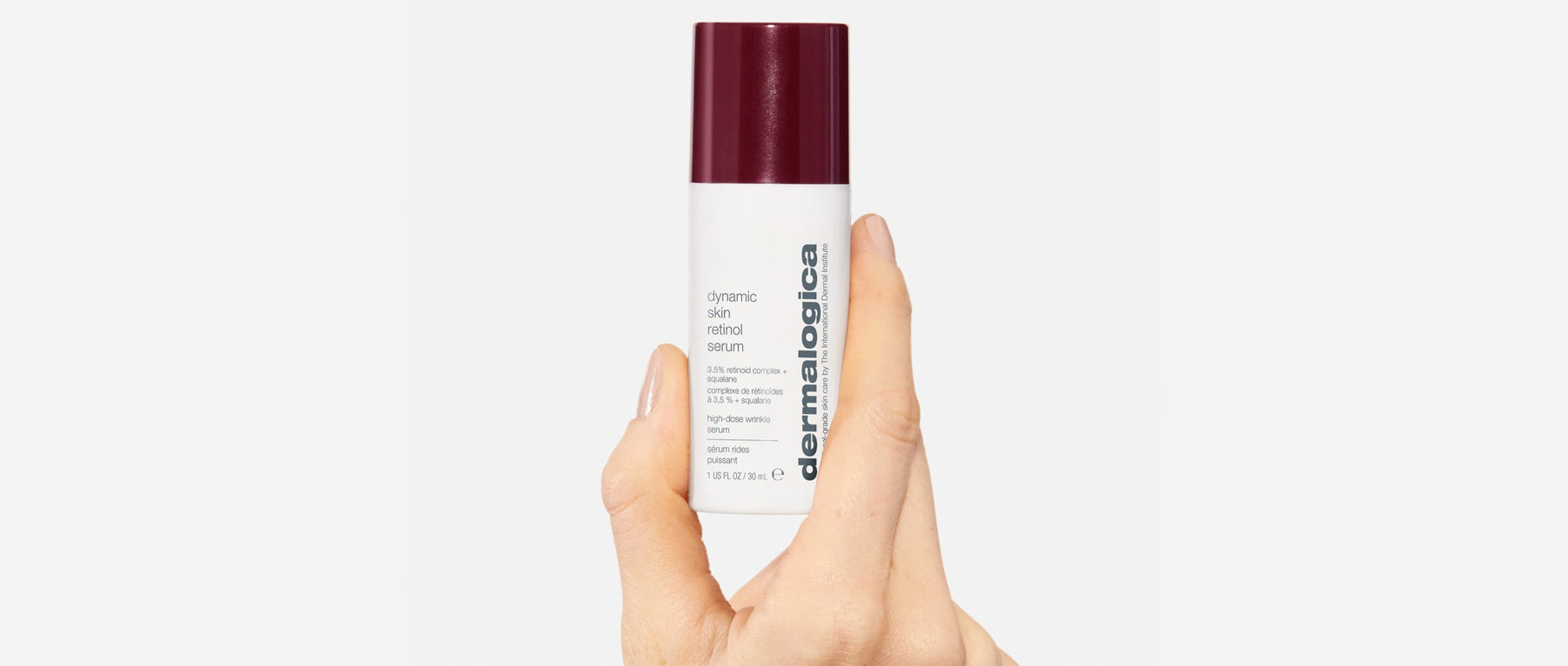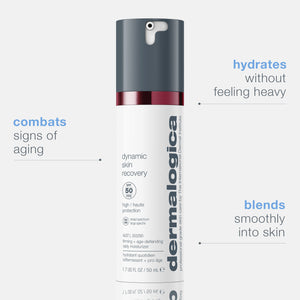7 min read
What is retinol?
02/15/2023 / Last Edited 10/03/2025
Retinol is one of the buzziest skin care ingredients ever. But for all the attention retinol has gotten, many people still don’t know what it is, how it works, or even how to use it. Let’s explore the basics you need to know about the effects of retinol and how it can transform your nighttime skincare routine for healthy skin.
what is retinol
Pure retinol is a retinoid – a form of Vitamin A – its hands down the industry’s gold standard ingredient for reversing the signs of skin aging. Retinol can benefit a multitude of skin conditions, but is most recommended for aging skins to reduce the appearance of fine lines and dark spots for firmer, smoother and more even-toned skin. Treating acne is another benefit of retinol, it can help prevent dead skin cells from clogging pores.
types of retinol
Retinoids come in many forms; retinol, retinaldehyde, and retinoic acid, to name a few.
Regardless of which one you use, it’s important to note that enzymes in the skin convert all retinoids into retinoic acid. The more closely related a retinoid is to retinoic acid, the more quickly your skin will utilize it. At Dermalogica , we formulate our retinol creams and serums with active ingredients including either retinol esters or retinol to reduce the risk of skin irritation and maintain optimum skin health.
retinoic acid
This is a type of retinoid that is available through a prescription in forms such as isotretinoin but has the most potential for skin irritation.
retinol
Retinol is the strongest retinoid available without a prescription. While still highly effective, retinol is about 20% weaker than retinoic acid and is slowly converted into retinoic acid by the skin. This also means there is less skin irritation.
retinyl esters
Retinyl esters like retinyl palmitate and retinyl propionate are the mildest retinoids. They take longer to convert to retinoic acid and carry a minimal risk of skin irritation. Learn more about our Retinoid Clearing Oil - our comprehensive breakout treatment for an aging skin with retinol and salicylic acid in one soothing oil for clearer, more vibrant skin overnight.
microencapsulated retinol
Dermalogica formulates with microencapsulated retinol, which helps stabilize the retinol to ensure maximum potency. Microencapsulated retinol also creates an invisible shield on the skin’s surface to help reduce moisture loss, which is critical for reducing the appearance of wrinkles and fine lines. Try Age Reversal Eye Complex to target the eye area.
why is retinol used?
Skin aging occurs for several reasons – research suggests up to 50% of visible signs of skin aging come from our exposome. Your exposome includes factors such as climate, UV exposure, pollution, sleep, diet and stress. These factors can be healthy or unhealthy but a chronically unhealthy exposome can accelerate skin aging beyond what our DNA alone would dictate. In addition to this, as skin ages, cell turnover and collagen production slow down. Visible signs of skin aging (dark spots, fine lines, wrinkles, etc.) appear because our skin’s natural defense mechanisms weaken due to slower cell renewal and skin recovery. Retinol is an excellent treatment choice for premature skin aging with its ability to accelerate skin renewal.
how does retinol work on skin?
Retinol encourages skin cell turnover and renewal. This gives skin a smoother, more even-toned appearance. To tolerate retinol, skin often has to build up what are called ‘retinoid receptors’ first. These receptors are proteins that are naturally found in skin, and they help retinol do its work. Skin can build retinoid receptors through controlled exposure, which is why it’s often recommended to start slowly with retinol products and build up to higher concentrations.
how to use retinol
- Begin using retinol gradually: Start using retinol slowly to build up your skin’s tolerance to help reduce irritation. Start by using it once every week, then every other day, then ultimately every day
- Apply retinol at night to avoid irritation from sun exposure
- During the day, always use sunscreen to help protect your skin against sun exposure
- Avoid other exfoliants unless they are designed to be used with retinol in the same product and your skin therapist/doctor says it’s okay
- Incorporate hydrating ingredients like hyaluronic acid into your skincare routine to help minimize any irritation that can be caused by retinol.
why retinol works best at night
With great power comes a great chance of side effects. Retinol is known for being effective, but it’s also known to cause some irritation, especially on sensitive skin types. One of the most gentle yet effective ways to use retinol is in your nighttime routine. Applying retinol nightly has two important benefits: minimal sun exposure after retinol use greatly decreases the chance of irritation and sun damage. Retinol can be more effective when paired with your skin’s nightly renewal process to prevent fine lines and wrinkles.
retinol + spf
Treat it with Retinol. Protect with SPF. When using retinol in your routine, always remember to apply and reapply SPF in the daytime. We recommend Dynamic Skin Recovery SPF 50. Never leave home without it!
benefits of retinoids
- Increases cell turnover and accelerates skin renewal
- Effectively evens out discoloration
- Smoothing damage that occurs during skin aging
- Help to decrease the amount of collagen breakdown from sun exposure
- Stimulates collagen production
Dermalogica's dynamic skin retinol serum
Dynamic Skin Retinol Serum is designed to effectively treat the 4 signs of skin aging: pore size, uneven skin tone, wrinkles, tone and texture. It’s formulated with a 3.5% Retinoid Complex, consisting of multiple retinoids working at different speeds to deliver intentionally-paced treatment to the skin, while minimizing irritation. It’s also packed with skin-strengthening ingredients like Squalene and Beta-Glucan to support skin’s barrier strength and resilience.








